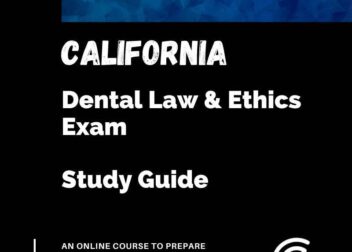A List of Affordable Law Schools in California
California is home to some of the best law schools in the country, offering quality education at various price points. For students looking to pursue a legal career without drowning in debt, affordable law schools are an excellent option. This post explores the factors to consider when choosing a law school and highlights some of the most affordable institutions in California.
Factors to Consider When Choosing a Law School

When selecting a law school, several factors can influence your decision. Here are key points to consider:
- Tuition and Fees: Look at the total cost of attendance, including tuition, books, and living expenses.
- Location: Consider whether you prefer urban or rural settings and how that affects your living costs.
- Program Accreditation: Ensure the school is accredited by the American Bar Association (ABA) to qualify for the bar exam.
- Specialization: Some schools offer strong programs in specific areas of law, such as environmental or intellectual property law.
- Class Size: Smaller class sizes can mean more personalized attention and better student-faculty interaction.
- Career Services: Investigate the school’s support for internships, job placements, and networking opportunities.
Taking the time to weigh these factors will help you choose a law school that fits your needs and goals.
Top Affordable Law Schools in California

Here’s a list of some of the most affordable law schools in California, based on tuition rates and overall value:
| Law School | Annual Tuition | Location |
|---|---|---|
| California Western School of Law | $55,000 | San Diego |
| University of San Francisco School of Law | $59,000 | San Francisco |
| Loyola Law School | $62,000 | Los Angeles |
| Golden Gate University School of Law | $54,000 | San Francisco |
| Whittier Law School | $43,000 | Los Angeles |
While tuition costs are important, remember to evaluate the quality of education, faculty, and available resources at each school. These institutions provide a solid foundation for a successful legal career while helping to manage financial burdens.
Scholarship Opportunities for Law Students

Scholarships can significantly reduce the financial burden of attending law school. Many institutions and external organizations offer various scholarships based on merit, need, or specific interests. It’s essential to explore these opportunities thoroughly as they can help you manage your educational expenses effectively.
Here are some common types of scholarships available for law students:
- Merit-Based Scholarships: These are awarded based on academic performance, standardized test scores, or other achievements. Many law schools offer these to attract top candidates.
- Need-Based Scholarships: Designed for students who demonstrate financial need, these scholarships require applicants to provide detailed financial information.
- Diversity Scholarships: Aimed at increasing representation in law schools, these scholarships often target underrepresented groups in the legal profession.
- Specific Interest Scholarships: Some scholarships cater to students pursuing particular areas of law, such as environmental law, public interest law, or criminal justice.
Additionally, many organizations and foundations offer scholarships, such as the American Bar Association, state bar associations, and various legal organizations. Remember to check each scholarship’s eligibility requirements and deadlines to ensure you don’t miss out on potential funding.
Financial Aid Options for Attending Law School
In addition to scholarships, there are several financial aid options available to help law students cover their costs. Understanding these options is crucial for managing your budget effectively. Here are some common types of financial aid:
- Federal Student Loans: The U.S. Department of Education offers federal loans, such as Direct Unsubsidized Loans and Grad PLUS Loans, which typically have lower interest rates compared to private loans.
- Private Student Loans: Many banks and financial institutions offer private loans for students. Be sure to compare interest rates and repayment terms.
- Work-Study Programs: These programs allow students to work part-time while studying, helping to offset living expenses. Many law schools offer work-study opportunities in various departments.
- Institutional Grants: Some law schools provide their grants based on need or merit. These do not need to be repaid, making them an excellent option for financial support.
Always fill out the Free Application for Federal Student Aid (FAFSA) to determine your eligibility for federal loans and aid. This step is crucial to unlocking various financial resources for your education.
Career Prospects After Graduating from Affordable Law Schools
Graduating from an affordable law school doesn’t mean compromising on your career prospects. In fact, many affordable institutions offer robust career services that can help students find job placements and internships. Here are some career paths law graduates may pursue:
- Private Practice: Many law graduates start their careers in private law firms, working as associates in various areas of law, including corporate, family, or criminal law.
- Public Interest Law: Some graduates choose to work in non-profit organizations or government agencies, focusing on issues like civil rights, environmental protection, or social justice.
- Corporate Counsel: Graduates may find opportunities working in-house for corporations, handling legal matters and ensuring compliance with laws and regulations.
- Judicial Clerkships: Working as a clerk for a judge can provide valuable experience and insights into the legal process, making it an excellent option for many law graduates.
- Academia: Some graduates choose to teach at law schools or universities, contributing to the education of future lawyers.
The job market for law graduates can vary by region and specialty, but affordable law schools often have strong alumni networks and career services to support graduates in finding fulfilling careers.
Student Life and Support Services
Student life at law school can be both exciting and challenging. Balancing coursework, networking, and personal life can be overwhelming at times, but most law schools provide various support services to help students thrive. These services enhance the overall experience and ensure that students have the resources they need to succeed.
Here are some common support services available at law schools:
- Academic Advising: Most law schools have academic advisors who assist students in planning their courses, selecting electives, and preparing for exams. They can also help students create study plans that fit their learning styles.
- Mental Health Services: The stress of law school can take a toll on mental health. Many institutions offer counseling services and workshops focusing on stress management, mindfulness, and work-life balance.
- Career Services: Career support is crucial for law students. Most schools provide resume reviews, mock interviews, and networking opportunities with alumni and legal professionals.
- Student Organizations: Joining student organizations can enhance your law school experience. These groups often focus on specific areas of law or interests and provide networking opportunities and events.
- Library and Research Support: Law libraries are valuable resources for students. Many schools provide research assistance and access to legal databases, helping students succeed in their studies.
Utilizing these resources can significantly enhance your law school experience, making it more enjoyable and successful.
Frequently Asked Questions about Affordable Law Schools
As you consider pursuing a law degree, you may have questions about affordable law schools. Here are some frequently asked questions and their answers to help you navigate this journey:
- What is the average tuition for law schools in California?
The tuition varies significantly but ranges from $40,000 to $65,000 per year for most law schools. - Are affordable law schools reputable?
Yes, many affordable law schools are accredited and offer quality education. It’s essential to research the specific schools you are interested in. - How can I apply for scholarships?
Visit each law school’s website for information on available scholarships and their application processes. Also, check external scholarship opportunities. - What career services do law schools offer?
Most schools provide job placement assistance, resume writing help, networking events, and internship opportunities. - Can I work while attending law school?
Many students work part-time while studying, but it’s essential to manage your time effectively to balance both responsibilities.
These FAQs provide a starting point for your research, helping you make informed decisions about your law education.
Conclusion on Pursuing Law Education in California
Pursuing a law education in California can be a rewarding journey, especially with the numerous affordable options available. With careful planning and consideration of your goals, you can find a law school that fits your needs and budget. Scholarships and financial aid options can significantly ease the financial burden, allowing you to focus on your studies and future career.
Remember to take advantage of the support services offered by law schools, from academic advising to mental health resources. Engaging in student life through organizations and networking can enrich your experience and open doors to future opportunities.
As you embark on this path, stay informed, ask questions, and connect with fellow students and alumni. Your dedication and hard work will pay off, paving the way for a successful career in law.


